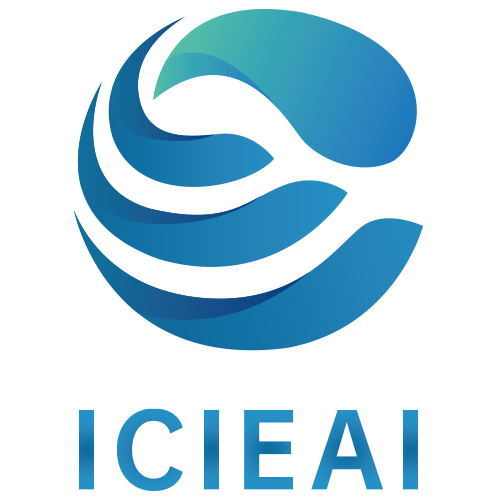
Speakers
| Prof. Haoran Xie, Lingnan University, China Prof. XIE Haoran is the Professor and Person-in-Charge at the Division of Artificial Intelligence, Associate Dean of the School of Data Science, and the Director of the LEO Dr David P. Chan Institute of Data Science at Lingnan University, Hong Kong. He has 467 research publications, including 272 journal articles. He is the Editor-in-Chief of Computers & Education: Artificial Intelligence (Scopus Rank 2 Journal in Education), Computers & Education: X Reality (Scopus Q1), Natural Language Processing Journal, and Artificial Intelligence in Language Education. His total Google Scholar citation counts is 26,875, h-index is 64, and i-10 index is 225. He has also been selected as the World’s Top 2% Scientists from 2021. |
Prof. Xinguo Yu, Central China Normal University, China Dr. Yu Xinguo is Professor at the National Engineering Research Center for E-Learning, Central China Normal University, Wuhan, China. He also holds an adjunct professorship at the University of Wollongong, Australia. He is the Chair of the Hubei Society of Artificial Intelligence in Research and Education. Prof. Yu's research primarily focuses on HI-AI collaboration, intelligent education, intelligent research, educational robotics, multimedia analysis, computer vision, and machine learning. With over 200 published research papers including over 30 SCI papers. Prof. Yu serves as an Associate Editor and Guest Editor for several international journals and has contributed significantly to the global academic community by serving as General Chair, Keynote Speaker, and Program Chair for more than 30 international conferences. Since 2021, he has pioneered and led the annual International Conference on Intelligent Education and Intelligent Research. |
|
| Prof. Dong Huang, South China Agricultural University, China Professor and Vice Dean of the College of Mathematics and Informatics and College of Software, South China Agricultural University. He is a Pearl River Young Scholar under the "Guangdong Special Support Program," Vice Chairman of the Guangzhou Computer Society, and Deputy Secretary-General of the CCF Digital Agriculture Branch. His primary research focuses on artificial intelligence, big data analytics, and their applications. He served as the chief editor of the textbook General Artificial Intelligence (for Agricultural and Forestry Universities) and has published over 100 papers in international journals such as TKDE, TIP, TNNLS, and at top-tier conferences including KDD and AAAI. Six of his papers as the first or corresponding author have been recognized as ESI Highly Cited Papers. His developed algorithms have been applied in the real-time correction and analysis of meteorological big data in Guangdong Province (already deployed in provincial meteorological units) and in the big data analysis systems of leading agricultural enterprises. He has led more than 10 vertical and horizontal research projects, including three National Natural Science Foundation of China projects and three Guangdong Natural Science Foundation projects. He has been listed among the World's Top 2% Scientists by Stanford University and has received several awards, including the 2020 ACM Guangzhou Rising Star Award, the 2022 Youth Science and Technology Innovation Award from the Guangdong Artificial Intelligence Industry Association, the 2023 Second Prize for Natural Science from the Guangdong Artificial Intelligence Industry Association, the 2025 Third Prize for Natural Science from CCF, and the 2025 Second Prize for Teaching Achievement in Guangdong Province. |
Prof. Kai Liu, South China University of Technology, China Professor and Doctoral Supervisor at the School of Law, South China University of Technology. He serves as the Director of the Legal Intelligence Laboratory at South China University of Technology and the Director of the Guangdong Foreign-Related Trade Secrets Protection Base. He holds a joint Ph.D. from the South China University of Technology–University of Oxford Faculty of Law and completed postdoctoral research in law. Additionally, he is a researcher at the Center for Rule of Law in Economy and Society, South China University of Technology. His concurrent roles include Council Member of the Economic Law Research Society of the China Law Society, Council Member of the Legal Journal Research Society of the China Law Society, and Executive Editor-in-Chief of the Pearl River Youth Law Review. He has published several academic papers in core journals such as Law Research, Tribune of Political Science and Law, Law Science, and Law Journal, with some articles reprinted by Xinhua Digest, China Social Sciences Digest, and Renmin University Copying Materials. He has led multiple national and provincial-level research projects, including two Young Scholars Programs of the National Social Science Fund, a Youth Project of the Ministry of Education Philosophy and Social Sciences Research Program, and a Legal Theory and Research Project of the Ministry of Justice. He has also participated in several major national and provincial projects, such as the Ministry of Education's Major Research Projects and the National Social Science Fund's Major Bidding Projects. |
|
| Prof. Xiaoli Li, Singapore University of Technology and Design, Singapore Xiaoli is currently a Full Professor and Head of the Information Systems Technology and Design Pillar at Singapore University of Technology and Design (SUTD). He previously led A*STAR’s Machine Intellection Department, where he built and directed Singapore’s largest AI and data science research group. He is also an Adjunct Full Professor at Nanyang Technological University, and a Fellow of both IEEE and AAIA. His research spans AI, data mining, machine learning, and bioinformatics, and has produced more than 400 peer-reviewed publications with over 30,000 citations, an h-index of 90, and more than ten best paper awards. He serves as Editor-in-Chief of the Annual Review of Artificial Intelligence and as an Associate Editor for leading journals such as IEEE Transactions on Artificial Intelligence and Knowledge and Information Systems. He has also played key leadership roles as conference chair or area chair at premier venues including AAAI, IJCAI, ICLR, NeurIPS, KDD, and ICDM. |




